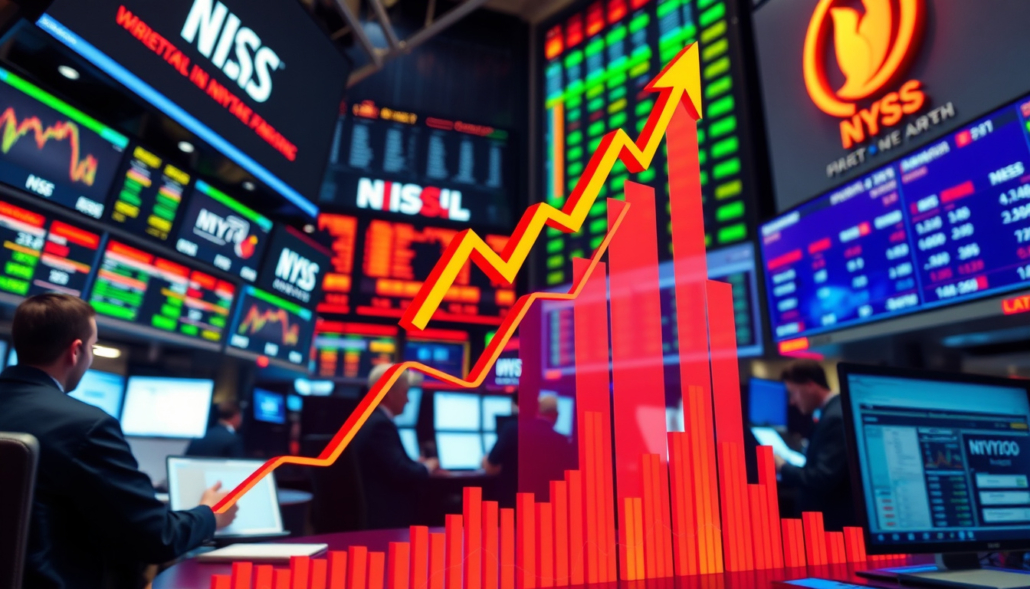In recent years, financial markets change fast. Investment strategies also shift. Many now see bonds as the core that keeps the global economy afloat. Stocks and real estate grab our eyes, but bonds hold the system together. This article digs into why bonds now play the main role when stocks take a back seat.
The Historical Perspective: Lessons from 2008 and Beyond
Many financial advisors today did not face the market shake-up of 2008. They saw a long bull run and falling interest rates. Their advice may miss the value of learning from hard times.
At that time, many used a 60/40 portfolio mix: 60% stocks with 40% bonds. This plan worked in a time when bond prices went up. The scene has shifted now:
- Interest rates rise and do not drop.
- Inflation reaches high double digits at times.
- The economy now acts like the unpredictable days of the 1970s and the long decline of the Depression.
Why Bonds Matter More Now Than Ever
The bond market is many times larger than the stock market. Bonds form the ties that keep our financial system in place. When inflation or economic change forces interest rates up, bond prices fall. This fall sends shock waves beyond what many casual investors see.
Bonds do more than sit aside from stocks. They shape the economy’s balance:
- Bonds keep the world’s money system stable.
- Bond yields guide corporate loans, government debt, and home loans.
- As inflation increases, bonds with fixed interest drop in value and put pressure on savings.
Why Saving May No Longer Be the Safe Bet
A famous saying goes, "Savers are losers." In current times, fast money printing and high inflation make cash lose value fast. This fact touches everyday investors:
- Keeping cash or low-yield savings may hurt you.
- Inflation eats away at the real worth of saved money.
- It now makes sense to look at other asset classes and plans.
The Risk of Ignoring Market Fundamentals and Technicals
Many still admire Warren Buffett’s view: focus on a company’s health through its assets, debts, income, and costs. Yet, Buffett does not mix in market charts and trends. Some investors stick to a "buy and hold" method, thinking that markets always rise. Sadly, such views come from a long bull market. Markets move in cycles, stirred by feelings, rate changes, political acts, and world events.
The Real Risks: Shorting and Overconfidence
Short selling means betting a stock will fall in price. This method is one of the riskiest, especially for beginners. Imagine shorting a stock like Apple at $10, hoping for $5, but it jumps to $100. The loss can be huge.
The lesson is clear:
- Know your limits.
- Learn well before you enter risky trades.
- It is often simpler to plan long term with a mix of bonds and other assets.
Looking Beyond Stocks: Hard Assets as a Hedge
In the current climate, seasoned investors spread their money into hard assets such as:
- Gold and silver, which have long stood against rising prices.
- Oil wells that give you a share in real goods.
- Real estate, though rising interest rates may pull down its value.
Rising rates can lower property values as loans grow more expensive. Good timing and careful plans help in this area.
Political and Economic Uncertainties
Today’s global scene and government choices add extra risks:
- High spending and growing debt are a worry.
- Shifts in government goals—say, between green energy and old-school growth—might unsettle markets.
- Price jumps in food and energy come as supply chains face troubles.
Investors must see these big factors when they build their portfolios.
Summary: Why Bonds Are in the Spotlight Now
- The huge bond market shapes economic balance.
- Rising interest rates put bonds under the microscope.
- Inflation weakens saving and old stock plans.
- Both market charts and a company’s health hold weight.
- Spreading investments into hard assets with care is wise.
- Political choices and world events need a sharp eye.
The old days of endless bullish stock runs may be behind us. Understanding how bonds work in the economy helps investors face uncertain times with more surety.
FAQs
Q1: Why is the bond market larger than the stock market?
A1: The bond market covers government debt, corporate bonds, and more fixed-income notes. It plays a key role in funding countries and guiding interest values.
Q2: How do rising interest rates affect bond prices?
A2: When interest rates climb, bonds with low fixed rates lose appeal. This drop in appeal results in lower bond prices and can lead to losses for those who hold them.
Q3: Should I stick only with bonds and skip stocks now?
A3: Not at all. While bonds matter in today’s market, a mix suited to your risk, time plans, and the global scene is usually the safest choice.
